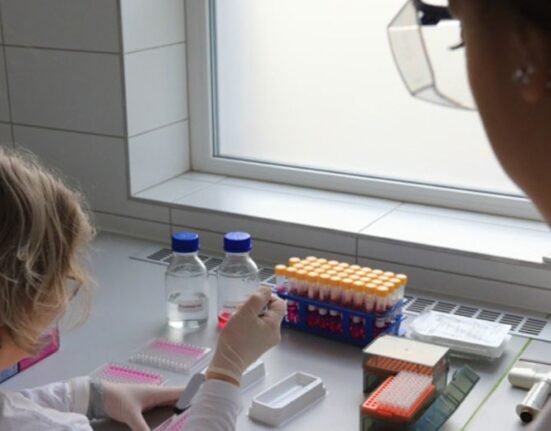HQ Team
December 27, 2022: Researchers in Singapore have found a novel therapeutic target called ADAM10 that can be useful in treating people with diabetic retinopathy (DR), which is caused by untreated diabetes.
A typical symptom of DR is the development of abnormal blood vessels in eyes, which could ultimately cause vision loss. The team is testing the different aspects of ADAM10 in angiogenesis with researchers and clinicians from A*STAR’s Institute of Molecular and Cell Biology (IMCB), SingHealth, Duke-NUS Medical School, Singapore Eye Research Institute (SERI), and Singapore National Eye Centre (SNEC).
In the study, the researchers were able to halt the development of blood vessels in preclinical animals by restoring the activity of ADAM10, a significant shedding protein, which was able to cure DR.
Senior Principal Investigator at IMCB, Dr. Jayantha Gunaratne, found that the protein patterns in eye fluids from DR patients differed from those in the control cohort, suggesting that the molecular makeup of eye fluids is indicative of the eye’s overall health. The scientists learned that defective protein shedding by ADAM10 is a critical clinical characteristic of DR.
DR affects about 103 million people worldwide. According to a study done by the Centers for Disease Control and Prevention (CDC), DR is most common among diabetic patients, with almost one in three developing the condition. It is the leading cause of visual impairment and blindness in the working-age population globally. The current treatment for DR is anti-VEGF (Vascular endothelial growth factor) injections, however, only around half of DR patients respond to the treatment.
The discovery of the novel therapeutic target ADAM10 provides key insights. It opens up a new path for developing effective therapeutics for DR patients, including patients who do not respond well to anti-VEGF treatments. “Through our collaborations with the local healthcare ecosystem, we have made significant progress with the discovery of therapeutic target ADAM10,” Hong Wanjin, PhD, executive director at A*STAR’s IMCB, said. “This is a breakthrough for the scientific community and will help advance the development of targeted therapeutics leading to better healthcare outcomes.”
The study is published in the journal Theranostics








